| Medically reviewed by
Robin Backlund, BHSc
Last update:
Watch, or listen the video if you don’t want to read it.
A blood pressure reading of 174/127 mmHg indicates that you are at a STAGE 2 HYPERTENSION, as per the latest guidelines from the American Heart Association, which define it as being between 140/90 mmHg and 180/120 mmHg.
Facing such a reading means you should urgently consult a medical professional and might necessitate hospitalization.
This concern applies to everyone—children, adults, the elderly, and pregnant individuals—and can lead to grave complications like stroke, heart failure, or organ damage if ignored.
Remember, blood pressure readings can be influenced by factors like age, gender, weight, and overall health, and what’s ‘optimal’ can vary based on one’s medical background and current health issues.
Was this helpful?
Contents
What does a 174/127 blood pressure mean?
The blood pressure value of 174/127 mmHg clearly indicates that the person is suffering from stage 2 hypertension. This is a medical condition experienced by an individual when their blood pressure readings are [>=140 for systolic and >=90 for diastolic].
Here is a blood pressure chart according to the latest guidelines of American Heart Association (AHA).
STAGE | SYSTOLIC mm Hg [upper #] | DIASTOLIC mm Hg [lower #] |
Normal Blood Pressure | Less than 120 | Less than 80 |
Elevated Blood Pressure Pre-Hypertension | 120-129 | Less than 80 |
High Blood Pressure Hypertension STAGE 1 | 130-139 | 80-89 |
High Blood Pressure Hypertension STAGE 2 | 140-180 | 90-120 |
Hypertensive Crisis Consult your doctor immediately | Higher than 180 | Higher than 120 |
A blood pressure reading of 174/127 mmHg means that the individual’s blood pressure is well above the ideal range, placing them at an inherent risk of heart disease and other health problems.
A study “Double the Prevalence of Stage 2 Hypertension Readings in a Small Group of American Pre-clinical Medical Students Compared to Young Adults Diagnosed with Stage 2 Hypertension in the United States” from Lincoln Memorial University, published in 2020 in Cureus, found that 17% of their sample size had stage 2 hypertension, which, in fact, correlates with current hospital metrics of U.S. adults.
In the medical condition of stage two hypertension, the pressure exerted by the blood flowing through the vessels is remarkably high, increasing the possibility of artery rupture, aneurysm, or hemorrhage.
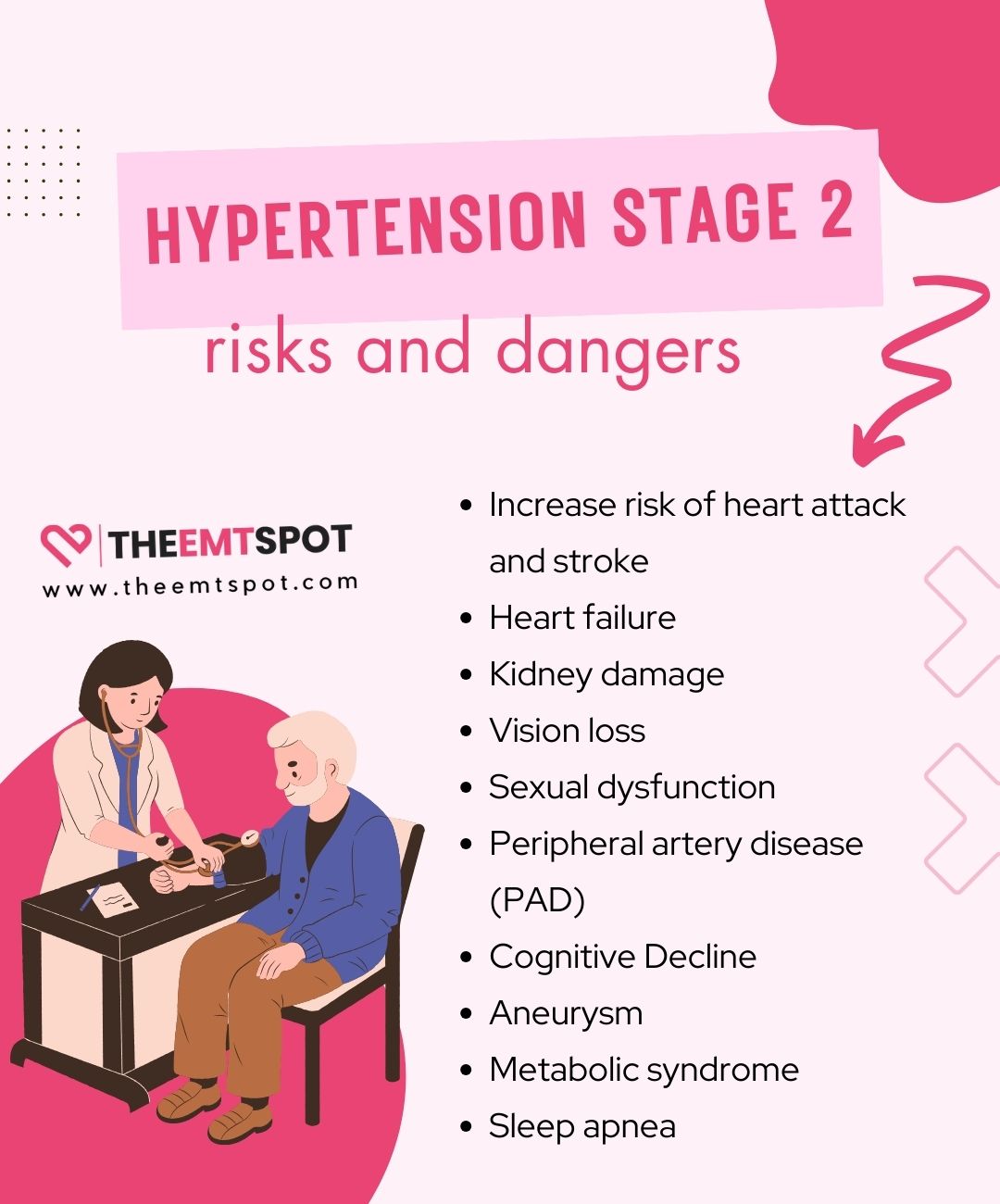
Medication is the most effective way to manage stage two hypertension, and it is strongly recommended to consult a healthcare professional regarding appropriate treatment.
Below are some symptoms that may indicate the presence of 174/127 blood pressure levels.
- Intense nausea and dizziness.
- Shallow breathing and difficulty in breathing.
- Heavy sweating and blurred vision.
- Nosebleeds.
- Blood spots in the eyes.
- Increased body weight.
What is the Mean Arterial Pressure (MAP) for a blood pressure of 174/127 mmHg?
The Mean Arterial Pressure (MAP) for a blood pressure of 174/127 mmHg is:
What is the Pulse Pressure (PP) for a blood pressure of 174/127 mmHg?
The Pulse Pressure (PP) for a blood pressure of 174/127 mmHg is:
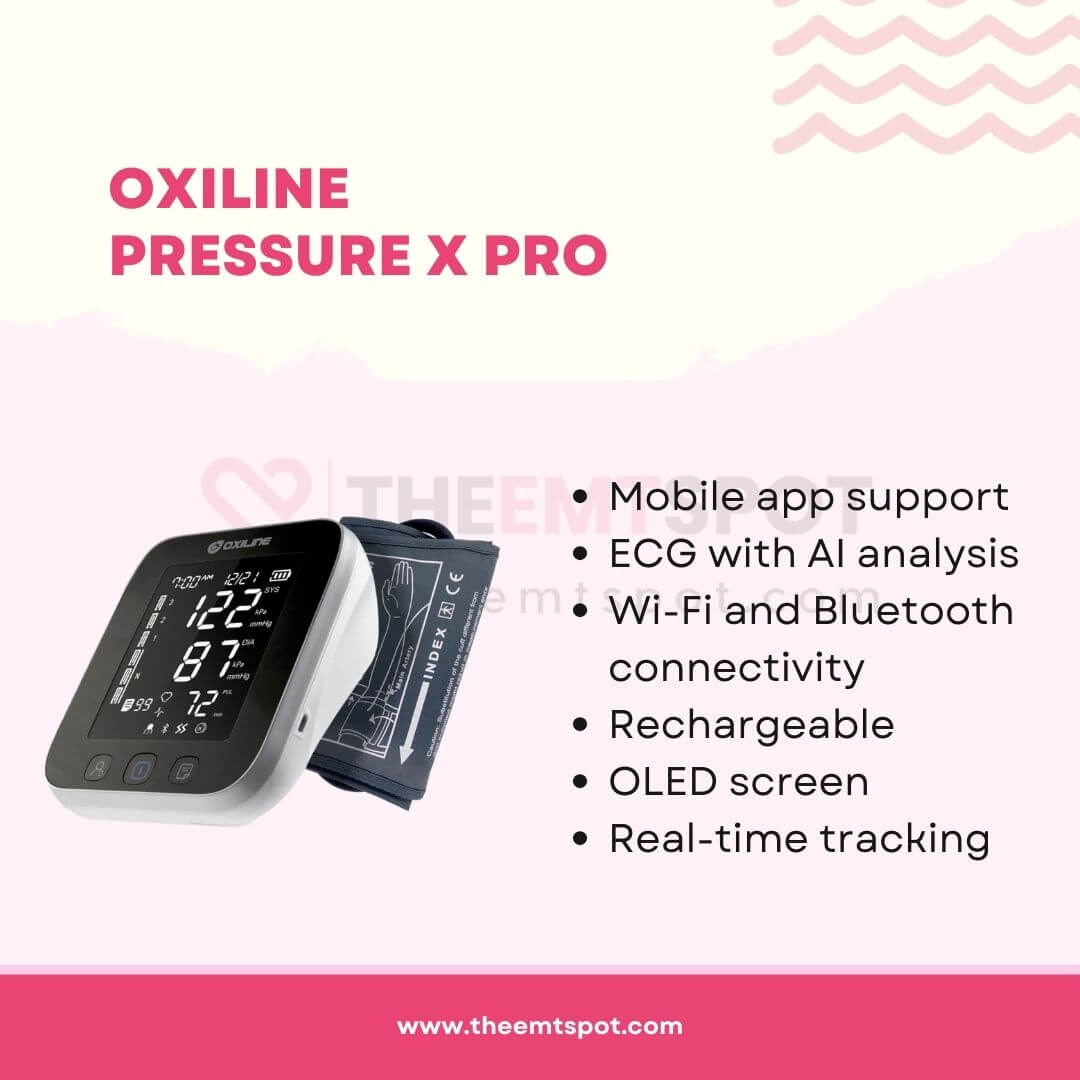
🚨 Exclusive Offer for TheEMTSpot’s Readers 🚨
Are you looking for a reliable way to monitor your blood pressure at home? Look no further! Introducing the Oxiline Pressure X Pro, your go-to device for accurate and hassle-free readings.
Use code EMTSPOT10 at checkout and get an instant 10% OFF THE PRICE!
Don’t miss out on this limited-time offer. Take control of your health today!
What should you do if you have 174/127 blood pressure?
Here is a set-by-step procedure to follow when you figure out you have a blood pressure of 174/127 mmHg.
- Verify blood pressure with a doctor
- Adopt these lifestyle changes immediately
- Consider using blood pressure medications
- Craft a balanced blood pressure-friendly diet
- Monitor for additional health conditions associated with stage 2 hypertension
- Support with natural supplements
1. Verify blood pressure with a doctor
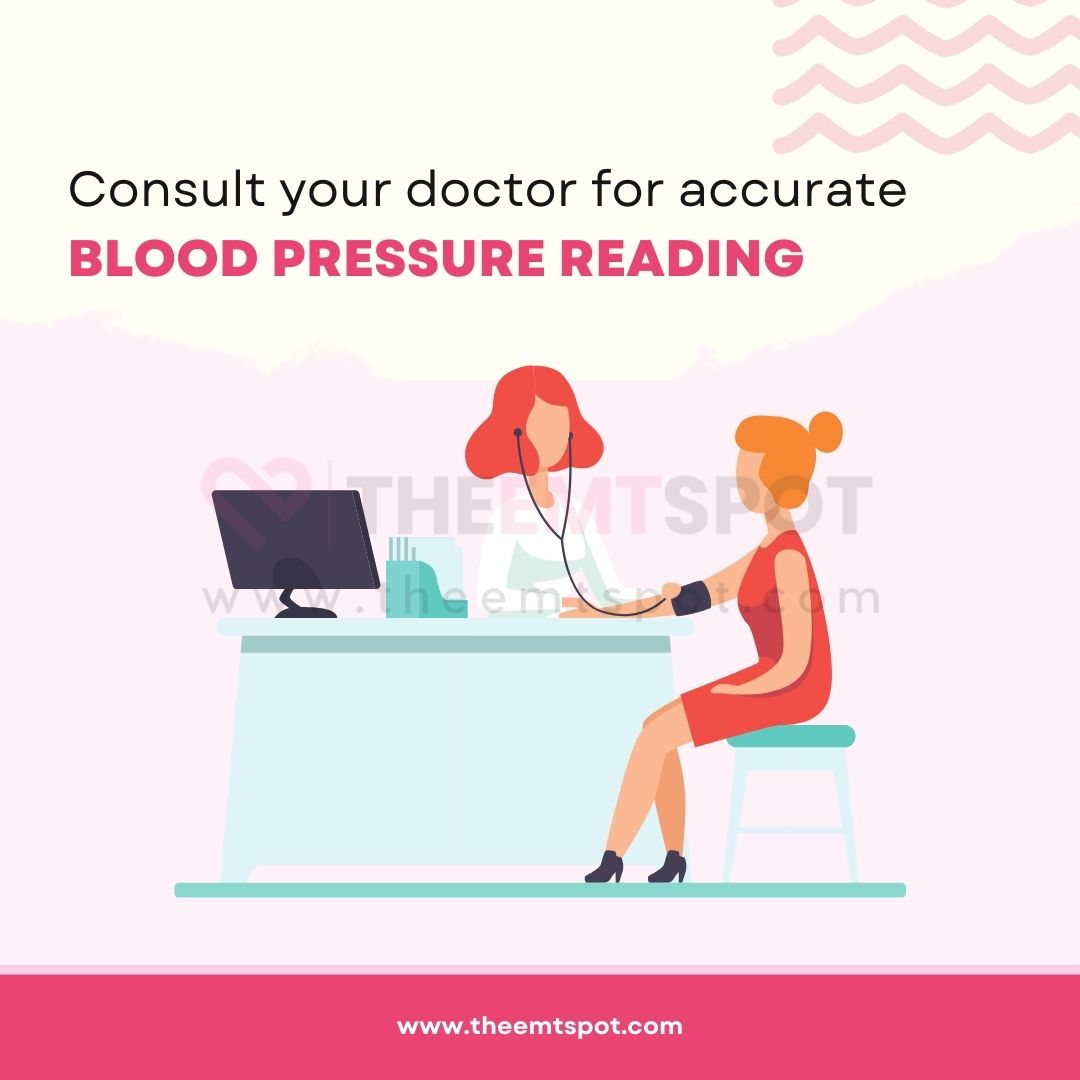
A trained professional has to clinically assess your condition and confirm that your 174/127 is, in fact, clinically valid.
There are instances when your reading at home setup might give you a reading which is incorrectly reported. It could be because of an error in reading it, damage to your device, your physical or mental condition on that particular day, etc.
Therefore, a doctor has to assess it over the course of 7 – 30 days periodically before he/she can confirm the accurate stage of your blood pressure.
In a study “Masked and white coat hypertension, the double trouble of large arteries: A systematic review and meta‐analysis” from the Aristotle University of Thessaloniki, published in 2020 in The Journal of Clinical Hypertension, Christina Antza and his team found something interesting about blood pressure readings.
Sometimes, when people are at the doctor’s office, their blood pressure reads high, but it’s normal when they check it elsewhere. They call this white coat hypertension.
On the flip side, some folks show normal readings at the doctor’s but have high readings at home or other places. This is known as masked hypertension.
2. Adopt these lifestyle changes immediately
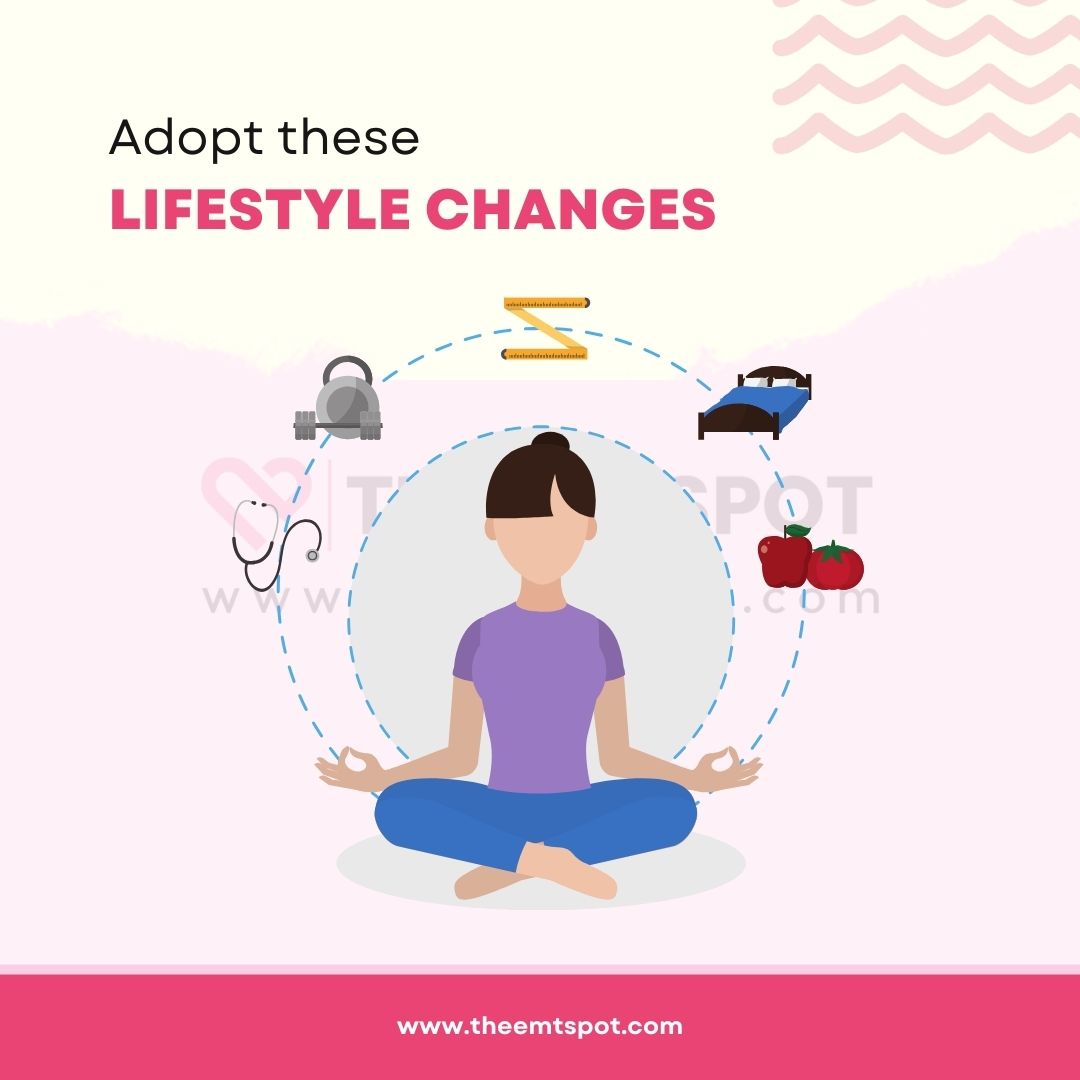
A blood pressure level of 174/127 mmHg indicates an impending dangerous condition that might be affecting your heart, brain, or kidneys.
Although immediate medical attention is necessary to treat this condition, there are some steps you can take on your own to help normalize your blood pressure.
Lifestyle changes, tailored to your health, can be highly beneficial for your overall well-being and can significantly aid your body in managing blood pressure issues.
According to the American Heart Association guidelines published in the article “Understand Your Risks to Prevent a Heart Attack”, the activities listed below can help control stage 2 hypertension and bring the levels back to normal.
- Rest and avoid engaging in strenuous physical activities.
- Consult your doctor immediately.
- Ensure you get adequate rest and sleep daily.
- Monitor your body weight and consider weight management if necessary.
- Closely restrict the intake of sodium and other minerals that contribute to elevated blood pressure.
- Cease smoking and drinking immediately.
- Avoid situations that induce high levels of stress and anxiety.
3. Consider using blood pressure medications
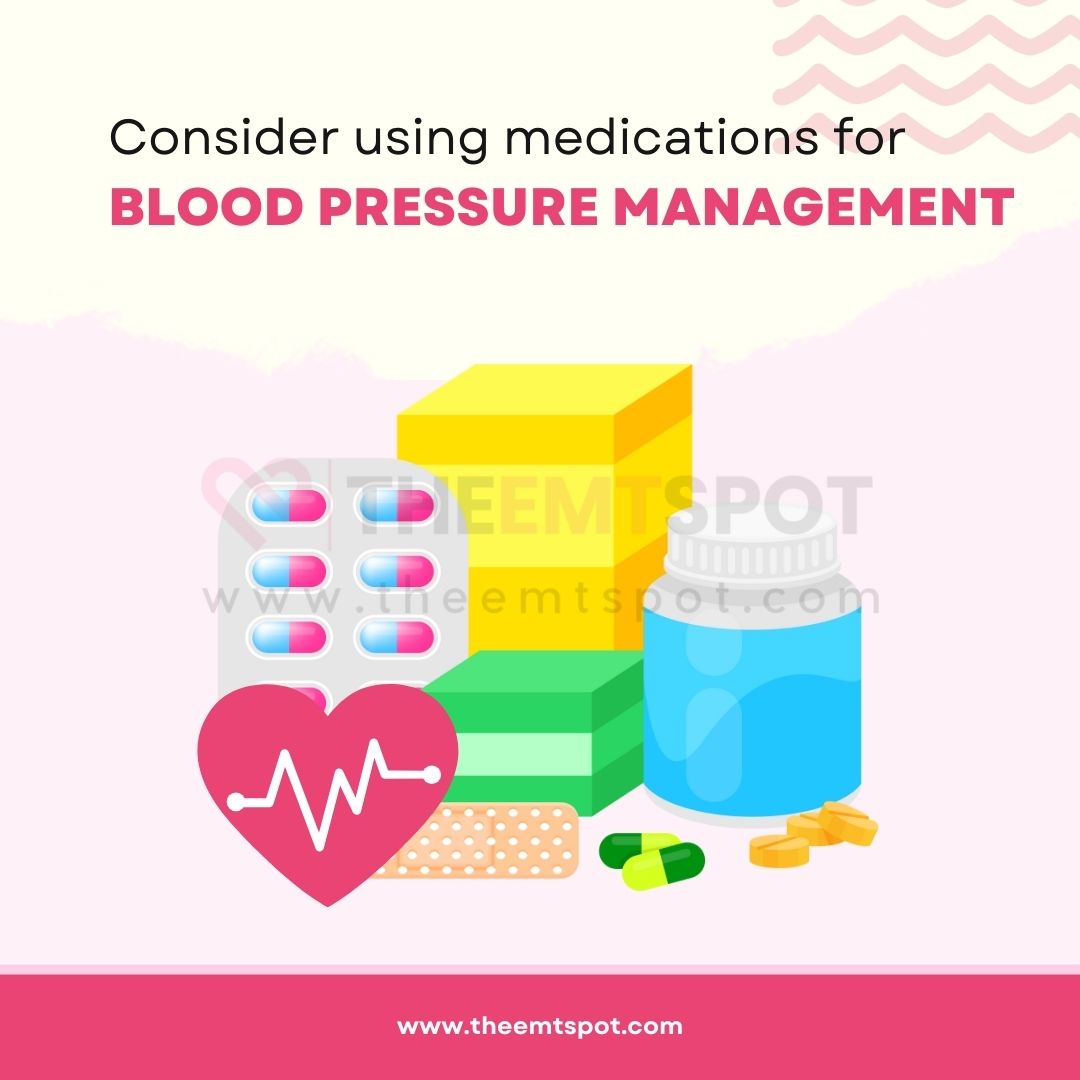
For a person suffering from stage 2 hypertension, medication is the most effective way to cure it. With a blood pressure of 174/127 mmHg, major health risks are associated with the health of the individual.
Using chemical drugs intended for reducing blood pressure under a doctor’s supervision is the best way to manage stage 2 hypertension.
According to NHS guidelines published in the article “High blood pressure (hypertension) – Treatment”, the following medications can be used when your blood pressure is 174/127. However, make sure to consult your doctor before trying any of these.
- Water Pills: these are the medicines that regulate the retention of sodium ions in the bloodstream. By supporting the expulsion of sodium ions from the body and lowering their concentration, this help reduces blood pressure in people.
- Alpha Blockers: these are the medicines formed of drugs that restrict the formation of compounds in the body that lead to the contraction of blood vessels.
- Angiotensin II Receptor Blockers: these are the support medicines that stop the narrowing of the blood vessels and help in their relaxation. Therefore, moderate blood pressure is ensured in the blood vessels.
- Vasodilators: These are medicines that contain drugs that help in the relaxation of the vessels, therefore, widening those. These medicines oppose the narrowing of the blood vessels and help keep high blood pressure in check.
- Calcium Channel Blockers: These are the medicines that help stop the intermixing of calcium ions in the bloodstream. Calcium is an active ion that leads to the narrowing of blood vessels. By restricting it, moderate blood pressure is ensured.
4. Craft a balanced blood pressure-friendly diet
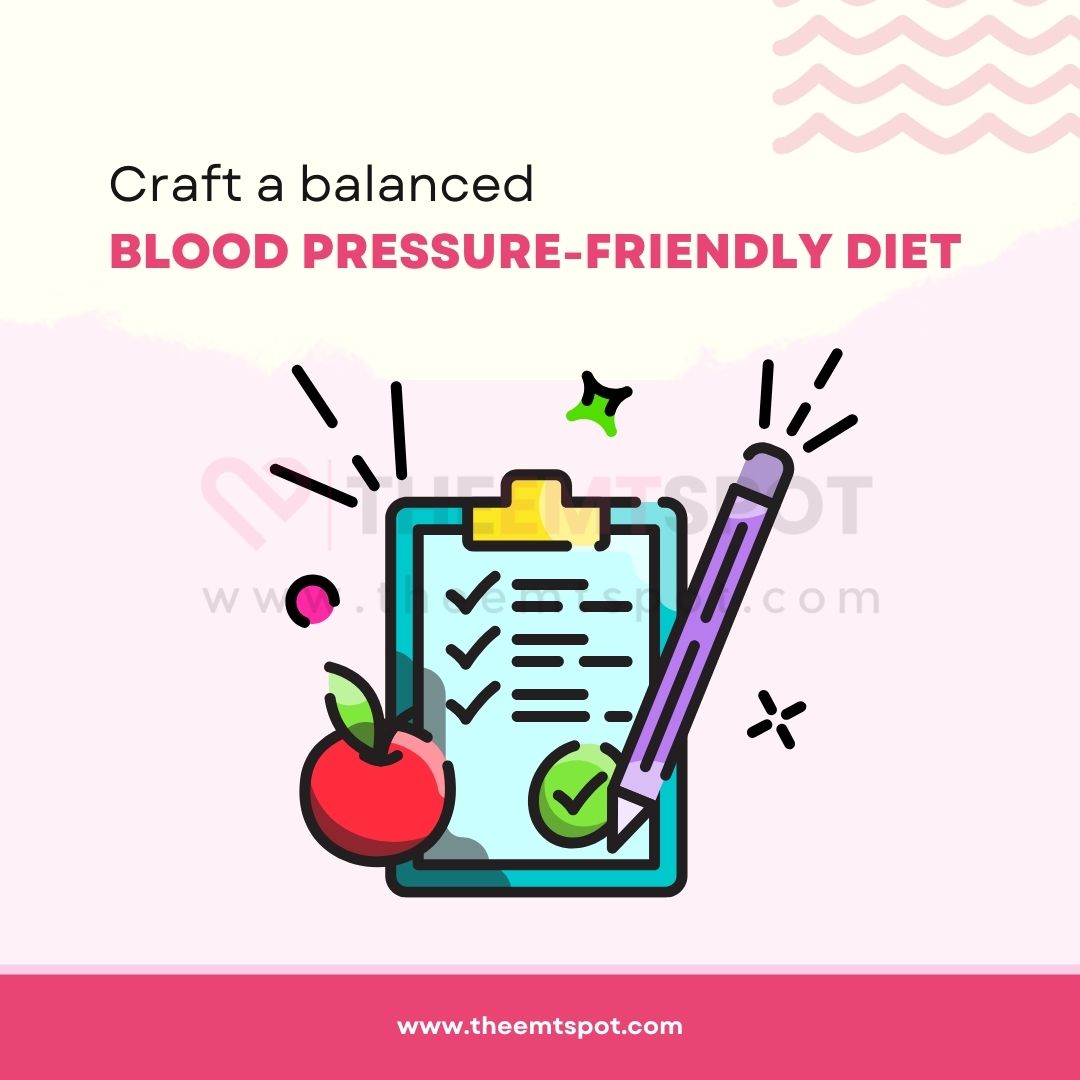
Your diet plan can majorly increase the possibility of you recovering from the problem of high blood pressure.
If you eat what is healthy and helpful for you and diverge from the usage of products that increase blood pressure, this will serve to be extremely beneficial for your overall health.
Harvard School of Medicine on the article “Beating High Blood Pressure with Food” provides a list of recommended foods aimed at helping you control your hypertension with minimal reliance on medications.
- Cut your sodium intake: Excess sodium in the body leads to water or fluid retention within the body. This, in turn, leads to the possible risk of heart attack and stroke. Therefore, immediately cut your salt intake.
- No caffeine: Caffeine products are known to increase blood pressure in individuals. This can be harmful to the health of the said individual, especially when you have 174/127 blood pressure.
- No sweeteners: A large sugar intake can lead to diabetes and high blood pressure. When both problems are aligned together, these serve to be a dangerous outcome for the individual.
- Hydrating fluids: Support the intake of fluids in large quantities. This will help in the retention of sodium, as well as help regulate the increased blood pressure.
- Herbs and spices: Some natural herbs and spices are known to help in the regulation of blood pressure in individuals. If you were to introduce the usage of these in your diet, these would benefit your greatly.
5. Monitor for additional health conditions associated with stage 2 hypertension
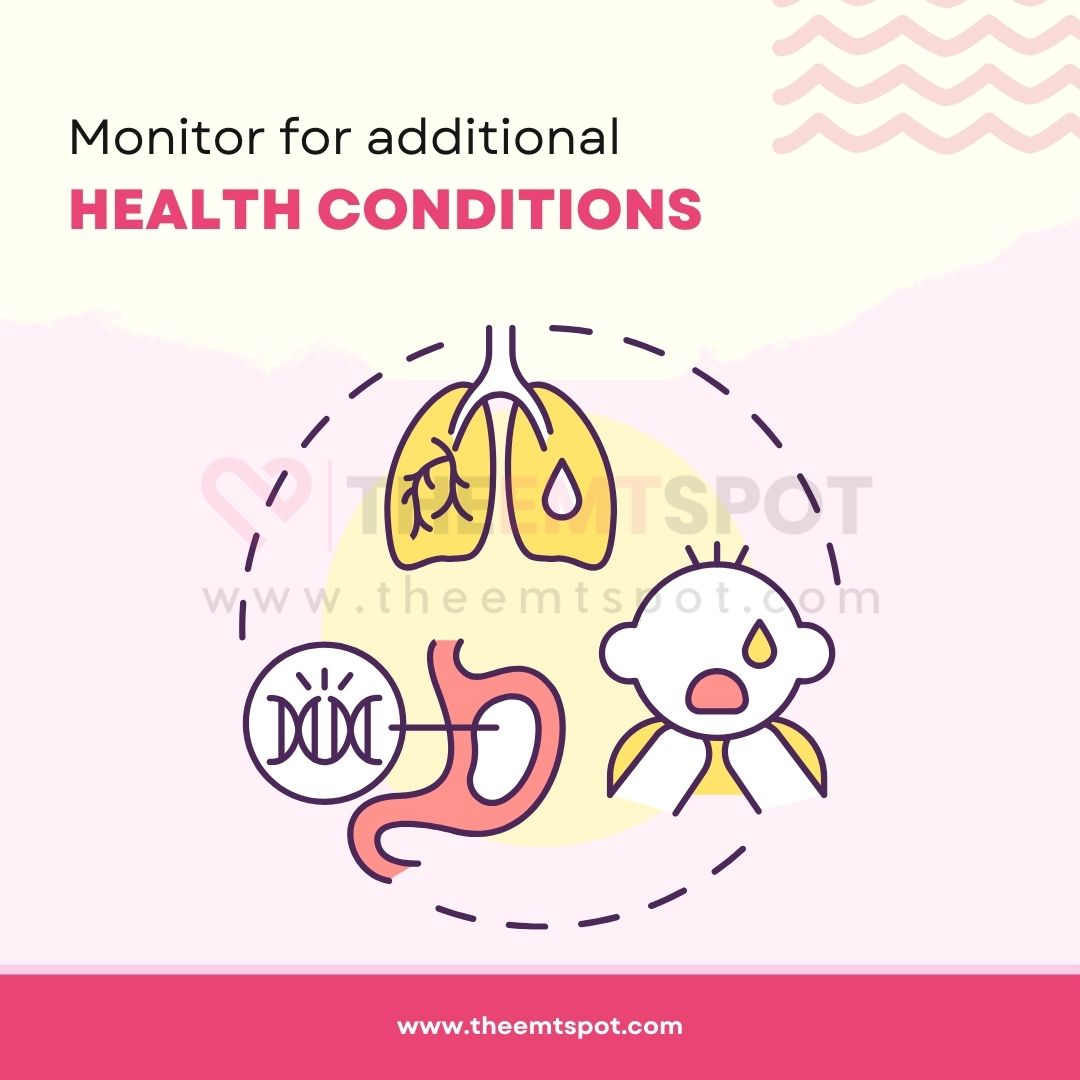
With a blood pressure of 174/127 mmHg, you are at risk of several other diseases, which can be harmful, while high blood pressure won’t alone be a risk.
A research “Diabetes, Hypertension, and Cardiovascular Disease: Clinical Insights and Vascular Mechanisms” conducted at the University of Glasgow, and published in 2018 on The Canadian Journal of Cardiology, has pinpointed diabetes as the primary factor exacerbating stage 1 hypertension, potentially diminishing the effectiveness of alternative treatments.
Various conditions such as obesity, sleep apnea, stress, or depression, among others, can contribute to an elevation in your blood pressure.
You need to be extra careful, especially if you check any of the below conditions listed.
- Medical history of heart diseases.
- Diabetes.
- Massive weight gain.
- High intake of sodium salts.
- Old age.
- Indulging in situations full of stress and anxiety.
- Not supporting a proper diet and exercise routine.
6. Support with natural supplements
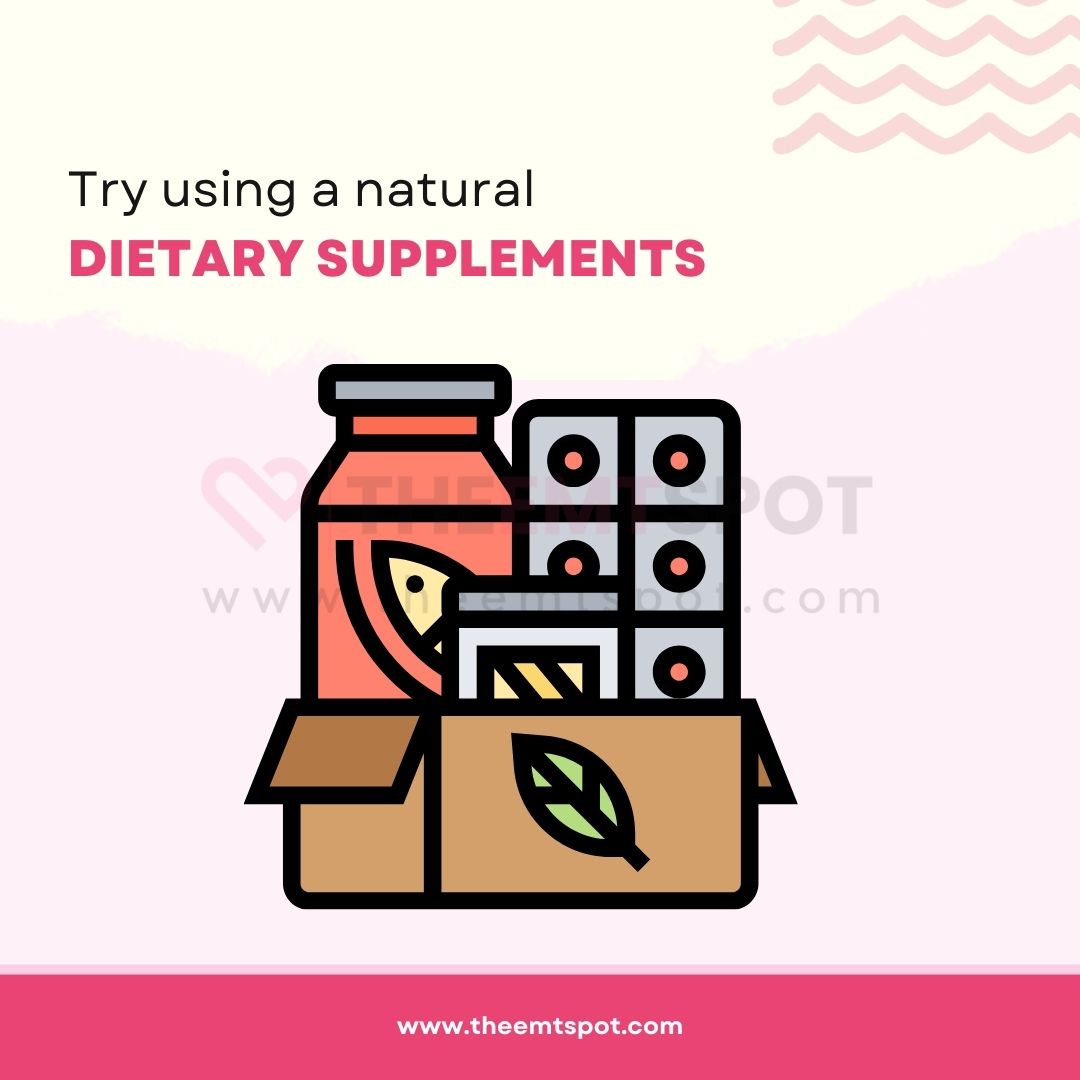
Sometimes managing blood pressure is all about supplementing your body with the right diet. Food is undoubtedly the best primary source to supplement your body.
However, in the current scenarios, we all know how much adultered our foodstuff is, and most of us are pushed towards processed foods to feed ourselves in this fast-paced world.
All these food are high in sugar and sodium and doesn’t contain any vital nutrients that are important for a healthy heart.
This is where some of the nutraceutical-based blood pressure supplements come in handy. These products combine all critical nutrients your heart craves, thereby assisting the better function of your cardiovascular system.
Generally, these supplements are a concoction of herbs, plant-based products, dairy products, and some animal products. They are 100% organic and natural and don’t contain any harmful chemicals.
Research study “Vitamins C and E: Beneficial effects from a mechanistic perspective” from 2011, published in the journal Free Radical Biology and Medicine, indicates that vitamins C, E, and D sourced from herbs are inclined to have a greater potential for lowering blood pressure in individuals with stage 1 hypertension.
If you are hearing about these segments of products for the first time, to start with, you may blindly go for Blood Pressure Support from Vita Balance Inc.
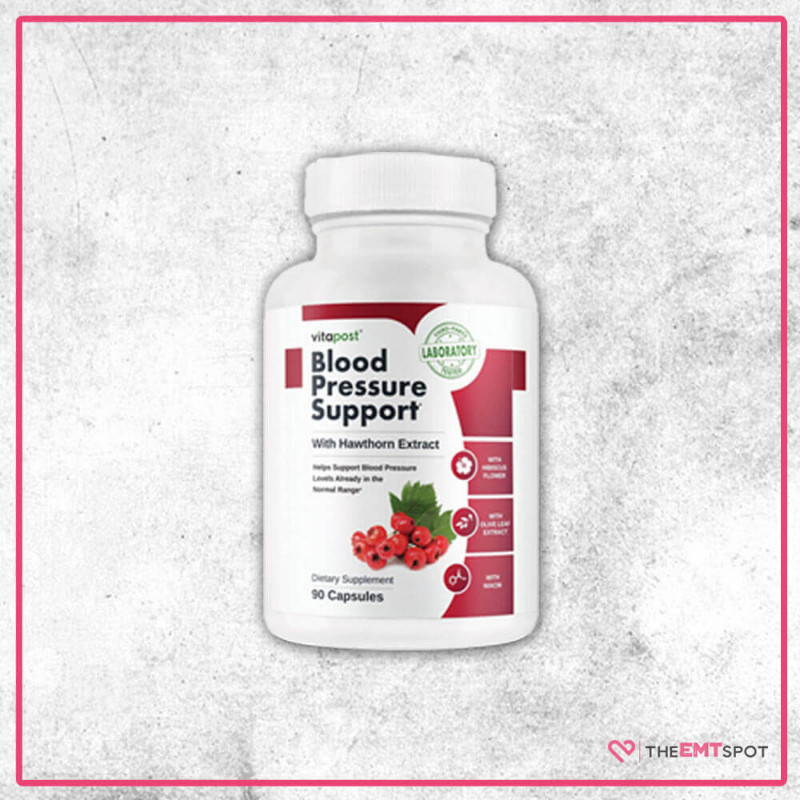
Blood Pressure Support
Blood Pressure Support combines hawthorn berry, olive leaf, hibiscus, and some vitamins like C, B6, B12, niacin, and folate alongside a bunch of other medicinal herbs to support the healthy working of the heart.
The only one thing to keep in mind is that choose the best supplement supporting healthy blood pressure, because when it comes to the heart, there is no taking of risk!
Stage 2 hypertension in itself is a serious enough blood pressure problem.
Proper medication happens to be the only way to bring this problem within the check in a short period.
Therefore, if you support the likelihood of having high blood pressure, it is recommended that you consult a physiotherapist.
What should you do when your blood pressure is 174/127 mmHg during pregnancy?
If your blood pressure is 174/127 mmHg during pregnancy, it’s an emergency situation requiring immediate medical attention.
This is considered a hypertensive crisis and places both the mother and the baby at serious risk.
According to the NIH article “High Blood Pressure – Pregnancy and High Blood Pressure”, the mother might experience a sudden spike in blood pressure, which might look similar to stage 2 hypertension, and this condition, especially during the gestational period, requires medical attention.
Prompt evaluation and treatment are essential to prevent complications such as preeclampsia, premature delivery, or even stroke.
Head directly to the nearest emergency room or call an ambulance.
Is blood pressure 174/127 mmHg too high for a male?
Yes, a blood pressure of 174/127 is exceptionally high for men and falls under the category of hypertensive crisis.
Immediate medical attention is crucial to prevent life-threatening complications such as stroke, heart attack, or organ failure.
If you find yourself with this reading, seek emergency medical help immediately.
Is blood pressure 174/127 mmHg too high for a female?
Absolutely, a blood pressure reading of 174/127 mmHg is exceedingly high for women and represents a hypertensive crisis. Immediate medical intervention is vital to avert serious risks such as stroke or heart failure.
If this is your reading, go to the nearest emergency room or call an ambulance without delay.
Is blood pressure 174/127 mmHg too high for an elderly?
Yes, for an elderly individual, a blood pressure reading of 174/127 mmHg is dangerously high and a medical emergency.
The risk of severe complications, including heart failure and stroke, increases substantially.
Immediate medical evaluation and treatment are necessary, so call for emergency assistance right away.
Is blood pressure 174/127 mmHg too high for children?
For children, a blood pressure of 174/127 mmHg is alarmingly high and is a medical emergency.
The American Academy of Pediatrics (AAP) provides guidelines “Clinical Practice Guideline for Screening and Management of High Blood Pressure in Children and Adolescents” to determine if a child’s blood pressure is too high.
A reading of 174/127 is considered very high, despite the child’s age, sex, and height percentile.
High blood pressure in children can be a precursor to hypertension and cardiovascular issues in adulthood, necessitating early intervention and lifestyle modifications.
Is blood pressure 174/127 mmHg too high for an adult?
A blood pressure reading of 174/127 is extremely high for an adult and signifies a hypertensive crisis.
This is a medical emergency that requires immediate intervention to prevent critical complications like stroke, heart attack, or organ failure.
Emergency medical treatment is crucial; do not wait.

 Robin Backlund is a dedicated journalist and a medical student who has written several articles and essays exposing the falseness and hollowness of online resources in the medical science niche.
Robin Backlund is a dedicated journalist and a medical student who has written several articles and essays exposing the falseness and hollowness of online resources in the medical science niche.